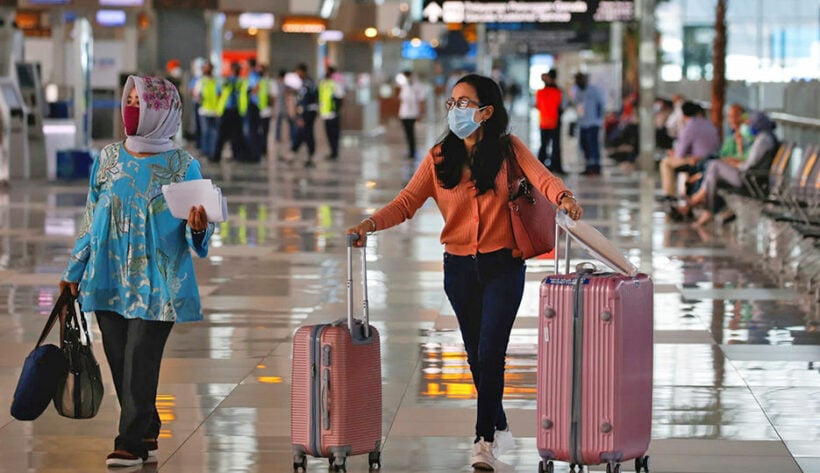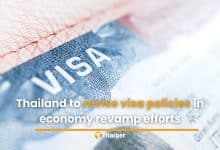We must establish travel bubbles – Thai tourism operators demand action

There has been a surge of domestic tourism in Thailand. But even that ‘surge’ is underwhelming when compared to the previous international traffic, 27% of it from China, in the ‘good old days’. Last year there were nearly 40 million overseas arrivals.
Even places like Phuket and Khao Lak, usually starting to fill up with international travellers for the traditional high season that starts this time of the year, are seeing unusually high numbers of ‘locals’ who are visiting some of these spots, encouraged by government stimulus packages, for the first time.
Local tourism operators in the southern island hot spots have been licking their wounds and wondering why they haven’t worked harder over the years to lure domestic tourists. For the first time ever, the revenue from domestic tourists has surpassed international tourist $.
Now, even with local tourists enjoying the quiet islands and beaches, tourist and hotel operators realise they put all their eggs in one basket – international tourists and mass tourism. The entire industry is scrambling to re-invent itself with the rude awakening that the good old days are unlikely to return, at least in the medium term and maybe longer.
Just yesterday the Thai government’s Covid-19 Taskforce, the CCSA, decided to maintain the 14 day quarantine requirement for travellers. For now, any plans to reduce the mandatory requirement to 10 days or less has been shelved. And the Special Tourist Visa, the ‘solution’ to allow international tourists back into Thailand, has seen less than 300 people arrive on the STV visa.
Thai travellers will spend about 500 billion baht on their travels around the country this year. That’s about half of what they spent last year but makes up almost all of the country’s current tourism revenue at the moment, according to the Kasikorn Research Centre. Foreigners, even the steady traffic from earlier in the year, will end up spending, in total, around 300 billion baht for the whole of 2020. The Tourism Authority of Thailand says the figure equates to just 17% of last year’s massive 39.8 million international visitors.
The Thai government is now caught between the competing national interests of public health (keeping the borders closed) and trying to reboot its economy (opening up the borders). Depending on the week the varying interests wax and wane. One issue is the mandatory 14 day quarantine which is being considered for revue, to be reduced to 10 days. For now, a final decision to reduce the number of days has been “deferred”.
Suphajee Suthumpun, Dusit Thani’s group CEO, says if the country is not reopened soon, hotel operators will suffer heavy losses. Also, she said, banks and financial institutions are not granting loans easily to tourism businesses to because of the risks.
“Hence, we want to ask the government to issue financial measures to support tourism businesses and to instruct the Thai Credit Guarantee Corporation to guarantee loans for small and medium enterprises.”
“We also want to ask the central bank to ease rules related to debentures as many large enterprises’ debentures are nearing maturity.”
Chaiyapat Paitoon, Minor International’s chief strategy officer, says the company had lost more than 14 billion baht in the first nine months of the year, and its businesses in Thailand accounted for 2 billion baht of the losses.
He said the company may need to boost its liquidity, by either finding new capital or launching debentures if the government does not reopen the country soon.
“The government should look into travel-bubble schemes, ease self-isolation rules and launch measures to support entrepreneurs.”
Marisa Sukosol Nunbhakdi, executive vice president of Sukosol Hotels and chairperson of the Thai Hotels Association, says the government should launch measures to help hotels, such as paying 50% of hotel staffs’ salaries as it has been doing for new graduates.
“The government should also extend its 2 per cent contribution to the Social Security Fund, set land and building tax at 10 per cent and ease self-isolation rules.”
Parkpoom Prapasawudi, vice president of the Erawan Group’s Hotel Asset Management division, says hotel occupancy has been at 20 per cent for more than 5 months due to travel restrictions.
“The situation in Thailand is different from China and Europe, where occupancy rate is 50 to 60 per cent and 30 to 40 per cent, respectively. The country must be reopened because hotels cannot survive if occupancy remains so low.”
SCMP reports that the president of the Association of Thai Travel Agents, Wichit Prakobkosol, says he hopes Thailand will consider launching tourist travel bubbles with low-risk nations. The idea has been on the table for months but the changes of fortune for previously low-risk countries keeps changing, making negotiations difficult.
“If we intend to launch a travel bubble, then we can focus on areas with no reports of coronavirus cases in the last 150 days, including China, Vietnam, Taiwan and New Zealand. Some 20 Chinese provinces had not recorded any infections in the past few months.”
“Without doing this, 2 million people… half of all human resources in Thailand’s tourism sector… will be out of jobs within the first quarter of next year.”
For now authorities seem determined to keep the dribble of international visitors funnelled through the capital where, officials say, they are well set up with the infrastructure to handle possible infections and the safe passage to quarantine of international arrivals.
Even the “Phuket Model”, an attempt to decentralise the international arrivals, was shelved, mostly through local fears. Some hotels geared up and went through the expensive process of ALSQ registration, only to find their efforts wasted.
c9hotelworks.cmm MD, Bill Barnett, says Phuket’s main advantage is that it already has controlled borders where a “bubble” could easily be managed.
“It required a 14 day Alternative Local State Quarantine at approved hotels on the island and a long-term tourist visa. A total of 17 Phuket hotels were approved as ALSQ providers, with 21 more applying for the status, but the government later backtracked and decided to make all international travellers arrive only in Bangkok and use ALSQ hotels there. This was a loss of opportunity for the southern region.”
“In essence, it seems what happens in Bangkok, stays in Bangkok.”
ORIGINAL SOURCE: SCMP
Latest Thailand News
Follow The Thaiger on Google News:


























